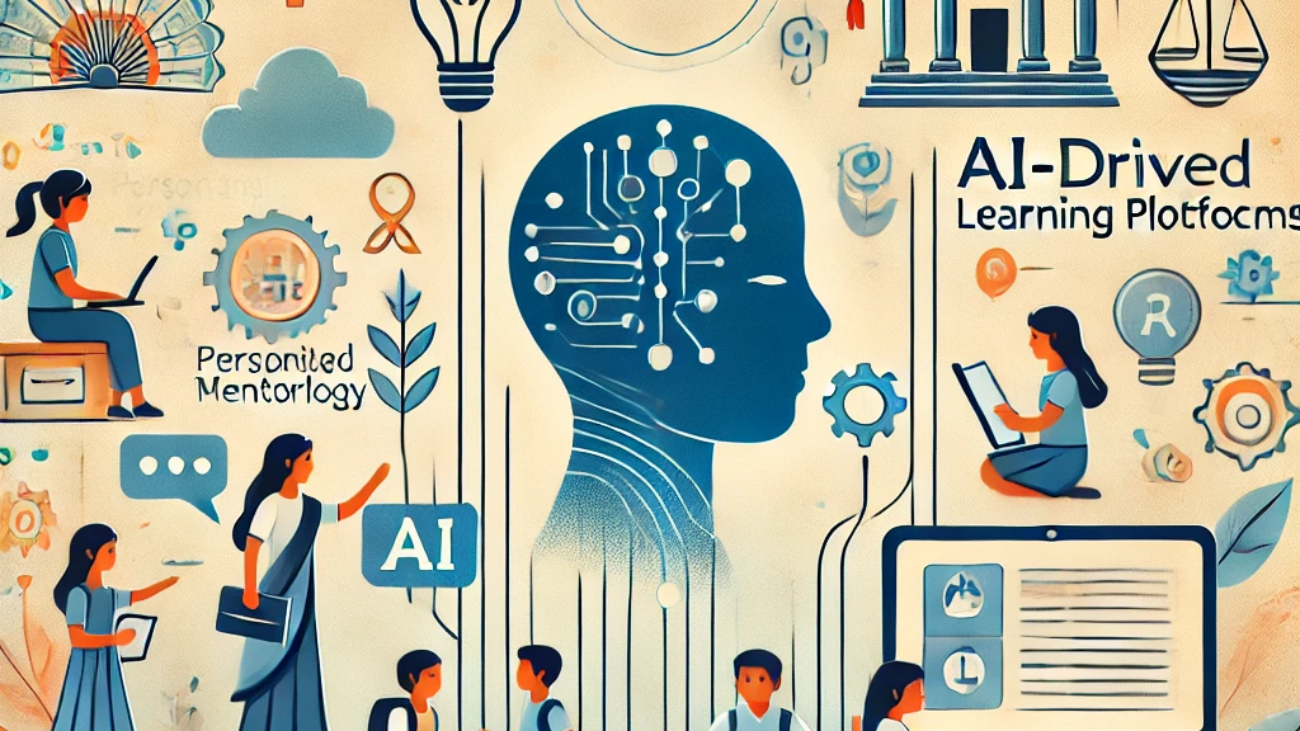In India, the prestige of the university a student gets admitted to often defines their future opportunities. With a limited number of premium institutions like the Indian Institutes of Technology (IITs) and Indian Institutes of Management (IIMs), the competition is fierce, and the system is heavily skewed towards those who gain admission to these elite universities. This has created significant inequality in higher education, leaving many talented students at a disadvantage. However, technology and the smart use of Artificial Intelligence (AI) offer promising solutions to bridge this gap and provide a level playing field for all students.
The Current Landscape: Prestige Over Merit
Limited Access to Elite Institutions
India’s higher education system is characterized by a small number of highly prestigious universities and a vast number of less well-known institutions. Admission to the top-tier universities is extremely competitive, with entrance exams like the JEE and NEET having acceptance rates lower than many Ivy League schools. This intense competition means that even highly capable students often miss out on the opportunity to study at these esteemed institutions.
Impact on Career Opportunities
The prestige associated with graduating from a top university extends far beyond education. Employers often prioritize candidates from these institutions, assuming a higher level of competence and skill. This creates a significant barrier for students from lesser-known colleges, regardless of their individual talent or effort.
Social and Economic Disparities
The emphasis on prestigious universities exacerbates social and economic disparities. Students from affluent backgrounds can afford better coaching, resources, and preparatory material, giving them an edge over their less privileged peers. This further entrenches inequality and limits social mobility.
Leveraging AI to Bridge the Gap
Personalized Learning and Skill Development
AI-powered platforms can offer personalized learning experiences tailored to each student’s needs and pace. These platforms use machine learning algorithms to analyze a student’s strengths and weaknesses, providing customized study plans, resources, and feedback. This personalized approach helps students from all backgrounds improve their skills and knowledge, making them competitive regardless of the college they attend.
Access to Quality Education Resources
AI can democratize access to high-quality educational resources. Online platforms like Coursera, edX, and Khan Academy use AI to recommend courses and tutorials based on a student’s interests and performance. These resources, often created by leading universities and experts, provide students with the opportunity to learn from the best, irrespective of their institutional affiliation.
Virtual Mentorship and Tutoring
AI-driven mentorship and tutoring services can bridge the gap between students and experienced professionals or educators. Platforms like MentorMind and AI-based tutoring systems can connect students with mentors who guide them through their academic and career journeys, offering advice, feedback, and support tailored to their specific needs.
Enhancing Employability and Job Matching
AI can help students enhance their employability by providing insights into the skills in demand in the job market. Platforms like LinkedIn Learning and Skillshare use AI to recommend courses that align with industry trends and job market needs. Additionally, AI-driven job matching services can connect students with potential employers based on their skills, experiences, and aspirations, rather than the prestige of their college.

Addressing Disadvantages Through AI
Breaking the Prestige Barrier
AI has the potential to shift the focus from institutional prestige to individual merit. By providing tools that enhance learning, skill development, and job readiness, AI empowers students from lesser-known colleges to compete on an equal footing with their peers from elite institutions. Employers can use AI-driven assessment tools to evaluate candidates based on their actual skills and competencies, rather than the name of their college.
Continuous Learning and Upskilling
The rapid pace of technological change means that continuous learning and upskilling are crucial. AI can facilitate lifelong learning by recommending relevant courses and certifications to help professionals stay updated with the latest industry trends. This ensures that students from all backgrounds can continuously enhance their skills and remain competitive in the job market.
Reducing Socioeconomic Barriers
AI can help reduce socioeconomic barriers by providing affordable and accessible educational resources. Many AI-powered platforms offer free or low-cost courses, making high-quality education accessible to students from economically disadvantaged backgrounds. Additionally, AI can identify and support students at risk of falling behind, providing targeted interventions to help them succeed.
The Road Ahead: Implementing AI in Indian Education
Government and Policy Support
For AI to have a transformative impact on education, strong support from the government and policymakers is essential. This includes investing in digital infrastructure, promoting AI literacy, and creating policies that encourage the adoption of AI in education. Initiatives like the National Education Policy (NEP) 2020, which emphasizes the use of technology in education, are steps in the right direction.
Collaboration Between Stakeholders
Collaboration between educational institutions, technology companies, and NGOs can drive the effective implementation of AI in education. Public-private partnerships can help develop and deploy AI-driven educational tools and platforms that are accessible to all students, regardless of their socioeconomic background.
Building AI Literacy
To fully harness the potential of AI, students, teachers, and administrators need to develop AI literacy. This involves understanding how AI works, its applications in education, and its ethical implications. Integrating AI education into school and university curricula can equip students with the skills they need to navigate and thrive in an AI-driven world.
Conclusion
The Indian education system’s overemphasis on the prestige of universities has created significant inequalities. However, the smart use of AI offers a promising solution to level the playing field. By providing personalized learning, access to quality resources, virtual mentorship, and employability enhancement, AI can empower students from all backgrounds to achieve their full potential. With the right support and collaboration, AI can transform the Indian education landscape, ensuring that every student has the opportunity to succeed, regardless of the college they attend.

